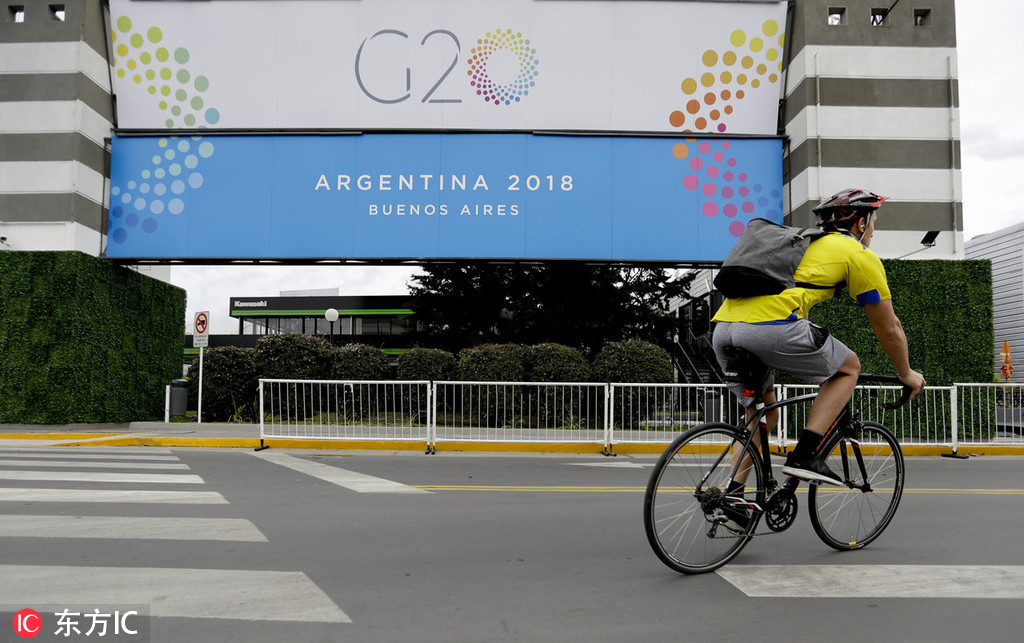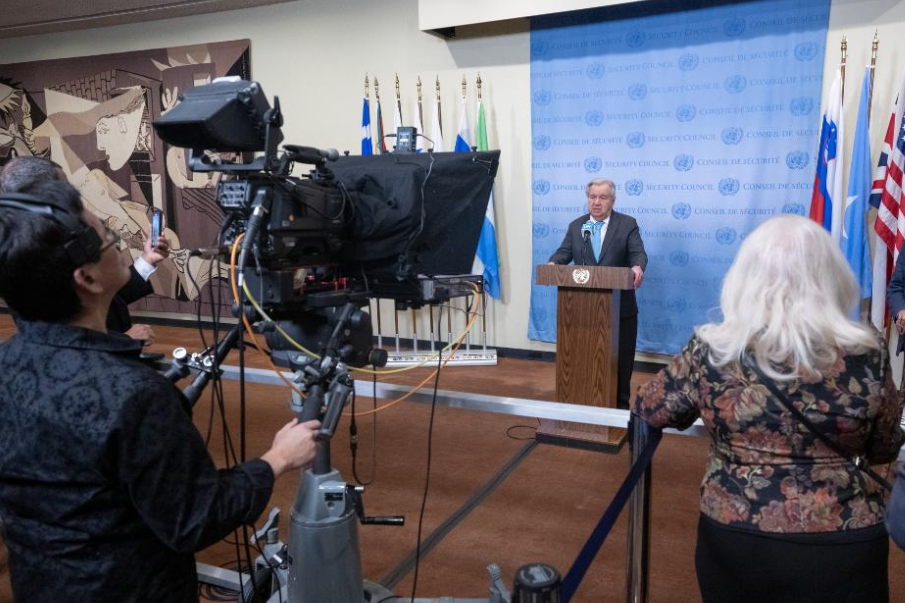WTO reform likely to see progress at leaders' gathering


The World Trade Organization wants its members to work more closely to bring about reform and modernization, according to its deputy head.
At the two-day G20 Leaders' Summit, which begins on Friday in Buenos Aires, Argentina, leaders are expected to deliberate on WTO reform plans.
"It needs to be inspired by the political leaders. A positive signal from the G20 would definitely strengthen confidence in the world economy," said Karl Brauner, the WTO's deputy director-general.
Brauner, a lawyer before turning to a career in trade policy, said he always seeks solutions and settlements through dialogue. "I think any platform where a conversation could take place should be used," he emphasized.
"We, the WTO, are a forum where these conversations can take place. I would like to see those who have issues with one another sit down and talk. As the forum for the negotiations on these issues, we provide the venue, but the inspirations should come from the top."
Brauner's areas of responsibility include dealing with the WTO's dispute settlement system as well as issues related to administration, general services, budgeting, finance and human resources.
"There is some concern with certain developments among members. And there are reform proposals coming from the European Union, for example, and also Canada, on some very specialized issues," he said.
"I think this is a very good development if those who would like to have a reform discussion could join forces and create positive momentum," said Brauner.
A week before the G20 Summit, Wang Shouwen, vice-minister of commerce, said at a news conference that Beijing backs reforms to enhance the authority and effectiveness of the WTO.
The Chinese government has stressed that such reforms must uphold the organization's core values of nondiscrimination and openness, protect the interests of developing members and uphold the decision-making mechanism.
Brauner said: "We want to uphold multilateralism, and we can see China is sponsoring certain reform proposals. China is a very important economic power in the world, and China should also have an intellectual input into what is happening by way of reforms.
"There is no doubt that China has a big role to play. China is also No 2 in terms of contributions to the budget of the WTO, overtaking Germany-the traditional No 2 contributor," he added, with the US being the top contributor.
In 2017, China contributed around $18.8 million to the consolidated budget of the WTO's Secretariat and the Appellate Body Secretariat.
According to the 2018 WTO budget, China's contribution will rise to nearly $19.3 million, which will account for 9.8 percent of the total budget.
In response to calls by some European stakeholders for members to seek alternative approaches to overcoming hurdles, Brauner said multilateral agreements are unquestionably better, because they will cover all members and provide a basis for legitimacy.
"All reforms eventually hinge on the good cooperation of the players in the WTO. So it would be an illusion to think that if we tweak a few rules here and sharpen a few definitions there, this is our reform and then things work out," he added.
"What we need is a willingness to cooperate. And if the willingness to cooperate is generated among the major players in the world economy, this would clearly be very helpful," he added.
In addition to collaboration between members, he also called for urgent action from the global business community. "I think it is clear from history that the Uruguay Round (of trade negotiations) was successfully concluded because businesses actually ran up to politicians and said: 'Do this, finalize it'. "
In terms of the future agenda, Brauner highlighted e-commerce as a growing force in global trade, with huge potential to drive inclusive growth for world economies, and developing countries in particular.
"Members are working to find rules to facilitate e-commerce. E-commerce is also looked upon as an element of development, of helping developing countries to have easier access to the world market," he said.
On the margins of the WTO Ministerial Conference in Buenos Aires last December, a new initiative named Enabling E-commerce was launched by the WTO, the World Economic Forum and the Electronic World Trade Platform.
The initiative, which aims at driving public-private dialogue on e-commerce, brings together leading voices from governments, businesses and other stakeholders to address challenges and find solutions for a more inclusive e-commerce landscape in the years ahead.
"Businesses have an enormous say. And we need this engagement from businesses now. Encouraging businesses to play a role is also very important," Brauner said. "All that we are doing now, eventually, is for the people's benefit."

































